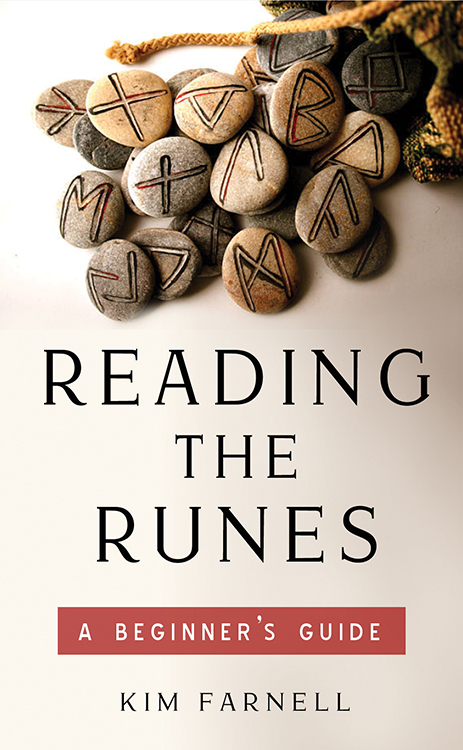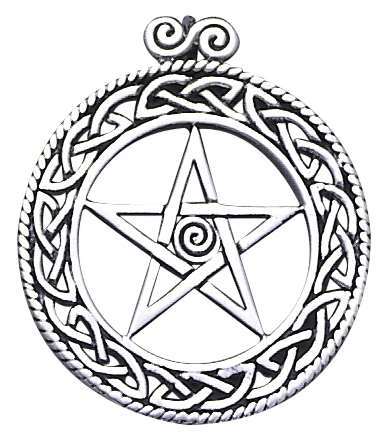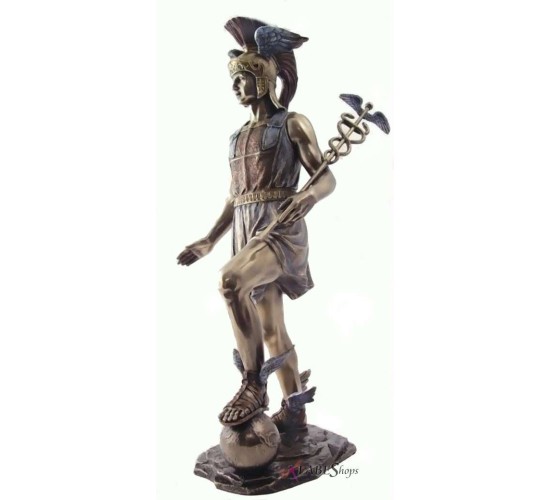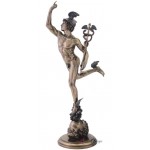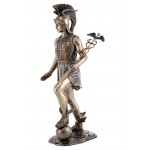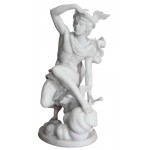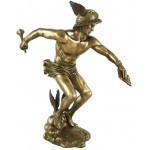Hermes, Messenger of the Gods, and His Connection to Wicca
- 542
- 0
In Greek mythology, Hermes stands out as one of the most versatile gods, holding titles such as the messenger of the Greek gods, the god of communication, trade, and travel, and a guide to the underworld. His attributes make him a multifaceted figure who transcends just one domain, embodying the qualities of a protector, trickster, and a mediator between realms. But how does Hermes relate to modern-day Wicca and spiritual practices?
Who is Hermes in Greek Mythology?
Hermes, the son of Zeus and the nymph Maia, was born in a secluded cave in Mount Cyllene. His swift nature and agility were apparent from infancy, and he quickly earned his place among the Olympian gods. Known for his winged sandals (talaria) and caduceus (a staff entwined with snakes), Hermes could move freely between the divine and mortal worlds, making him the ideal messenger. He is often depicted in art as a youthful, athletic figure, symbolizing vitality and quickness, which reflects his role in Greek mythology.
Hermes' functions extended beyond being a simple communicator. He was also the god of commerce, luck, and boundaries, and was credited with creating many inventions, including the lyre. Hermes' mischievous and cunning nature gave rise to numerous stories, including the theft of Apollo’s cattle. His role as a trickster god mirrors similar figures in other mythologies, such as Loki from Norse mythology. This duality — combining trickery and service to the gods — makes him a fascinating figure in spiritual traditions, both ancient and modern.
In the Roman pantheon, Hermes was known as Mercury, maintaining many of the same attributes but adapted to Roman culture and religion. Like Hermes, Mercury was the god of communication, commerce, and travelers, often depicted with winged sandals and a caduceus. He played a similar role as a messenger of the gods and was closely associated with trade, financial gain, and eloquence, reflecting Rome's emphasis on commerce and governance. While Hermes was more often connected with shepherds and boundaries in Greek mythology, Mercury’s Roman identity leaned heavily into his influence over trade and wealth. Both deities also shared the role of psychopomp, guiding souls to the underworld, connecting the material and spiritual worlds across different cultures. Mercury, like Hermes, was worshiped widely and was considered a crucial intermediary between gods and humans in both daily life and religious rites.
Hermes and the Role of Communication in Wicca
In Wiccan practice, deities are often revered for their ability to help practitioners connect with different energies, realms, and aspects of life. Hermes’ role as the Greek god of communication aligns him with many aspects of Wiccan tradition, where clear intention, communication with the divine, and balance between the spiritual and material worlds are critical. Wiccans frequently work with deities that represent the fluidity between realms, such as the ability to communicate between the material world and the world of spirits.
Hermes, as the messenger of the gods, embodies the power of words and the ability to navigate different planes of existence. This resonates deeply with Wiccan rituals, especially when casting spells that involve messages to higher powers or guidance from the divine. Hermes also serves as a psychopomp, guiding souls to the afterlife, which links him to practices within Wicca that focus on ancestral work and honoring the dead.
The Divine Masculine: Hermes in Balance with Wiccan Beliefs
Wicca often centers around the duality of divine masculine and feminine energies. Hermes, as a figure in Greek mythology, represents a key aspect of the divine masculine. His energy is not solely aggressive or domineering like some other masculine deities (e.g., Ares, the god of war), but is characterized by adaptability, communication, and cleverness. These qualities offer a more balanced and nuanced interpretation of masculine energy in spiritual practice.
For Wiccans who seek to invoke both masculine and feminine energies during rituals, Hermes offers a dynamic force that works well in harmony with goddesses such as Hecate, who also governs the boundaries between life and death. Hermes’ association with travelers and crossroads also ties into Hecate’s role as a goddess of transitions, making the two a powerful pair in spellwork focused on travel, communication, and protection during transitions.
Symbols and Offerings for Hermes in Wicca
Hermes is associated with several symbols, many of which can be used in Wiccan rituals. His iconic caduceus, a winged staff entwined by snakes, symbolizes negotiation, balance, and communication. The winged talaria (sandals) represent speed and agility, while the petasos (his winged hat) further emphasizes his ability to traverse between worlds. Animals such as the ram, rooster, and tortoise are sacred to Hermes, and can be incorporated into offerings and altars when honoring him in rituals.
When working with Hermes in a Wiccan context, offerings of coins (symbolizing his association with commerce), honey, incense (especially those associated with communication such as lavender or frankincense), and small fruits like grapes or figs are often used. These offerings serve to honor Hermes’ role as the guide of transitions, communication, and trade. Practitioners may also offer prayers or songs, as Hermes is known for his connection to eloquence and the arts.
Rituals and Invocations to Hermes
Invoking Hermes during a ritual can enhance practices that involve communication, travel, or divine guidance. A simple ritual could involve lighting a yellow or orange candle (colors associated with him), offering a libation of honey or wine, and placing coins on the altar. A prayer to Hermes might call upon him for assistance in travel, for protection during times of transition, or for clarity in communication with spirits or gods.
If you are seeking to enhance communication with the spiritual realm or are preparing for a significant life transition, invoking Hermes as a guide can be particularly powerful. In Wicca, where intent and clear communication are essential to successful spellwork, Hermes can serve as a divine intermediary to ensure that your messages are heard.
Hermes and the Caduceus in Wicca
The caduceus, Hermes’ iconic staff, has become a well-known symbol in modern times, often confused with the Rod of Asclepius, a medical symbol. In a Wiccan context, the caduceus can symbolize balance, harmony, and the intertwining forces of duality. With its serpents coiled around a staff, the caduceus represents the union of opposites — male and female, life and death, creation and destruction. This concept is especially relevant in Wicca, which emphasizes the balance between polarities and the cyclical nature of life.
Incorporating the caduceus into rituals can help invoke balance in chaotic situations or enhance spells designed for healing, negotiation, and protection. As Hermes governs boundaries, including those between life and death, the caduceus can also be used in rituals that involve crossing or navigating different spiritual realms.
Conclusion: Hermes’ Modern Influence in Wicca
While Hermes is deeply rooted in Greek mythology, his attributes as a mediator, protector, and communicator make him a natural fit within the Wiccan tradition. Whether used in rituals to enhance communication with the divine, to protect travelers, or to guide through transitions, Hermes’ influence can be both subtle and profound. By working with Hermes, Wiccans can harness his swift, adaptable energy to bring clarity, protection, and guidance into their lives.
Through his role as the Greek god of communication and messenger of the gods, Hermes teaches that the journey between worlds — both literal and metaphorical — requires wisdom, speed, and eloquence. These are all traits that are deeply valuable in the practice of Wicca, where connection to the divine and the balance of energies are at the core of spiritual work.





